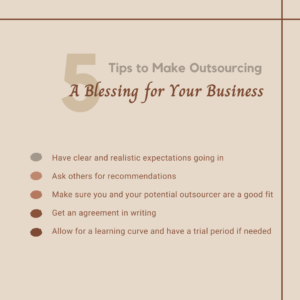Being a small business owner is awesome…most of the time. On the flip side, it can also be exhausting, especially if you’re not taking time out to give yourself the care you need. If your journey of entrepreneurship is beginning to feel more frustrating than exciting, then read on for my tips for avoiding burnout as a small business owner.
Signs of Burnout
Recognizing the signs is your first step to getting things back on track, so first, let’s talk about a few of the common early signs of burnout.
Getting Irritated Easily
We all have a different threshold for when calm turns to crazy, and different triggers that bring out our Mr. Hyde side. I can’t tell you what these are for you. (For me, calling down curses on my computer, no biggie. It wouldn’t be Monday if I didn’t tell my computer exactly where it’s going to end up if it doesn’t toe the line. On the other hand, if I’m frequently reminding myself to take a deep breath, it means I need a break.) Whether you’re muttering expletives under your breath or literally crying over spilled milk, recognize your irritation for what it is: an early sign of burnout.
Having Trouble Sleeping
Sometimes the hardest part of being a business owner isn’t the workday. It’s when you’re supposed to focus on non-work stuff—or relax and not focus on anything at all—that your brain jumps on the hamster wheel and won’t give you any rest. If thoughts of your business are interfering with your sleep, something needs to change. Because that kind of thing is a vicious cycle that will make you more tired, less able to work productively during the day, and more stressed when you’re supposed to relax.
Depending on Caffeine
Ask me and I’ll tell you, “If you need coffee, you don’t need coffee. You need sleep.” I’m not a coffee drinker and never have been, so trust me, you can survive without it! If the only way you can stay focused and make it through the workday is with caffeine or some other stimulant, take it as a sign that you need a better form of self-care than a percolator can provide.

Dropping the Ball
As a small business owner, you’re in charge of everything. And you’re human. So it’s only to be expected that every once in a while, you’ll send a late invoice or forget to follow up with someone. But if incidents like this become less of a “once in a blue moon” phenomenon and more of a “every time the moon is full…or waxing…or waning” kind of thing, it’s time to take a step back and recognize that you’re trying to do too much.
Or Just Stressing
Stress is one of the big signs of impending burnout. It also looks a little different for each of us. Which is why I want you to tune in to yourself for a minute and give some thought to how you experience stress. Do you feel overwhelmed and then end up procrastinating—or running yourself ragged? Maybe you worry that this whole running your own business idea was a terrible mistake? Or maybe it’s more like sadness and discouragement that make you want to throw in the towel? It’s important to know what stress tends to feel like for you, so you can recognize it early and deal with it before it leads to burnout.
How to Avoid Burnout
If you were feeling all, “That’s me…that’s me…that’s me again,” as you read that list of common signs of burnout, don’t feel discouraged. The fact that you’re recognizing the signs is great! It means this is your chance to turn things around.
Here are some of my favorite tips for avoiding burnout as a small business owner. See if any of these might provide a solution for you:
Prioritize
When you feel like your number one priority is to catch up on your workload, it’s a good sign that your number one priority should actually be…to prioritize.
Here’s how I recommend you do this: Get out of your normal work environment, take some quiet thinking time, and make a list of everything that’s on your plate right now. (I’m serious about getting out of your work environment, by the way. Go to a park or café, or just step away from the desk and hop into something cozy to put some distance between you and your on-the-job mentality. Trust me, you will think more clearly for it.)
What are all the things you feel like entrepreneurship is demanding of you right now? Be specific. (You might list things like, Getting more clients, posting to social media every day, blogging once a week, content creation for social media and blogging, shoot schedules, editing, ordering appointments, email newsletter, want to offer hair and makeup services, shopping for client wardrobe, etc.)
Now, prioritize your list. Stick a number next to each item, or use a ranking system if there’s too much overlap. (Five stars = My business will fall apart if I don’t do this. One star = This would be nice, but it’s not essential.)
Now that you know what your most important to-dos are, that’s where you want to put the bulk of your time and energy. If those lower numbers (or one and two star items) don’t get done this week, that’s okay.
Stick to a Schedule
You’ve only got so many hours in a day. And if all those hours are devoted to business, you’ve got a problem.
Your working hours don’t have to be the same as a traditional nine-to-five. One of the joys of being a small business owner is the flexibility to create a schedule that works for you. But you do need a clear beginning and end to your workday, so you can have a healthy work-life balance.

Without a boundary between working hours and non-working hours, you’re likely to find yourself thinking about work…All.The.Time. Give yourself time for meals and breaks, and set up some kind of ritual to signal to your brain and body when it’s time for work and when it’s time for other things. If it’s helpful and you have the space for it, an office area can also help delineate work from non-work.
However you do it, once you step away from your desk and clock off for the day, allow yourself to be done. No guilt. No sweat. Just mission accomplished.
Delegate and Outsource
If your boss was all, “You don’t need breakfast. Or lunch. And dinner should be microwaveable. You’d better leave your phone next to your bed so you can respond to all inquiries as soon as they come in. I expect you to flawlessly and singlehandedly manage sales, marketing, research, finances, human resources, production, and anything else I happen to come up with. And if you think I won’t guilt-trip you for every minute you spend thinking about something other than this job you’ve got another thing coming,” my guess is you’d quit.
And yet, that’s basically what you’re doing to yourself if you don’t do some delegating. Just because you’re a sole proprietorship doesn’t mean you can’t get a little support.
Remember that list we made? I want you to go back to it. You’ve already got it prioritized, so you know what your most important tasks are—which ones are essential to keeping your business running, which are important to grow your business, and which would just be nice.
As you look over that list, you’re going to shift perspectives from priority to passion. Think about: Why did you start this business? What do you love about it? What to-dos do you enjoy? Which do you dread?
If you’re looking for a quick route to burnout in business, it’s neglecting what you’re passionate about in favor of all the stuff you hate but that has to be done. You’re right. It does have to be done. But not by you.
Even if your budget will only allow you to outsource one thing—do it. Choose one of the items on your list that is high priority but low passion, and have somebody else take care of it for you. Your mental health and creativity will improve just from having that single weight off your mind—and your business won’t suffer for it, because that important (but dreaded) item is still getting done. (And probably better than you could do it, since you’ll be outsourcing to someone who specializes in that area.) Win-win.
Take Care of Yourself Physically
You know the drill: Get enough sleep. Move your body. Stay hydrated. Eat healthy meals. With as many times as we’ve heard this, you’d think we’d have it down by now. But when life gets busy, taking care of our bodies is one of the first things to get bumped to the bottom of the to-do list.
And that’s a little ironic, because taking care of your body is one of the best things you can do for yourself and your business.
Like I said, you know what to do here, so I’m not going to tell you how many glasses of water a day you should be drinking or anything like that. My biggest piece of advice here is to avoid an all-or-nothing mentality.
Maybe you can’t get a solid 8 hours of sleep, wake up and go for a run, come back and eat an amazingly nutritious and well-balanced breakfast, and get 4 glasses of water in, all before you even start your workday. I know I can’t.
But you can probably do something. Drink a glass of water when you wake up. Take a walk around the block when you need a break. Go to bed a few minutes early, or allow yourself a quick 20-minute power nap if you’re running on empty. You don’t have to do it all, but little choices like these add up and can help you take care of your body to feel better and avoid burnout.
Take Care of Yourself Mentally and Emotionally
We’ve talked about how sometimes physical self-care falls to the bottom of the to-do list. You know what’s even sadder? Mental and emotional self-care often don’t even make the list at all.
Your mind and spirit are just as important as your body. And they need the same consistent, diligent care. If you starved yourself for a week and then ate one really big, healthy meal when you couldn’t stand it anymore—the meal might be healthy, but the lifestyle certainly wouldn’t be. And yet, that’s exactly what we do to ourselves emotionally.
I’m a big proponent of the idea that mental and emotional self-care isn’t just for special occasions, and it isn’t even just for the weekends. It should be an everyday kind of thing, just like drinking water or eating something nourishing.
Again, I’m not going to go into a lot of detail here, mostly because every person is different, and what nourishes my soul may not do the same for yours. But I would encourage you to do a little something, every day, to take care of your mind and spirit. For me, I’ve noticed that there’s sometimes overlap between this and physical self-care. A walk, for example, is good for my body and also boosts my mood. And, just like physical self-care, little choices add up.
Taking care of your inner self can become part of your daily routine when you just listen to yourself. Once you’ve established a habit of emotional self-care, you don’t often have to plan ahead what you’re going to do. (Although if scheduling a bubble bath on your calendar gives you something to look forward to, do it!) Instead, you’ll think, “It’s such a gray day—it would be nice to have something cozy.” And you’ll light a candle or make yourself a cup of tea or grab your comfiest pair of socks. Or you’ll look ahead at your jam-packed schedule for the week and decide to politely bow out of one of those invites.
You don’t have to become a meditation guru to take good care of yourself mentally. You just have to tune in a little, learn what makes you happy, and make time to do it. (Need more mental health tips for small business owners? They’re right here!)
Talk It Out
Have you ever had an event or comment completely ruin your day? And then when someone asked you what was up and you tried to articulate it, did you feel a little embarrassed, because saying it out loud made you realize you’d been making a mountain out of a molehill?
Been there.
Problems almost always seem bigger in your brain than in your mouth, so talk it out. Call a friend or get in touch with your business buddy or mentor if you have one. If you truly can’t think of anyone you could talk to, even writing down the problem will help.

Putting your thoughts into words helps clarify them in your own mind, so you can identify what the problem actually is. And if you have a supportive someone you can turn to, they will usually have some distance from the issue and can give you some clear-eyed advice if you need it.
A problem shared is a problem halved, they say, and while I don’t know if I’d go quite that far, it’s true that sometimes all you have to do to jump off the burnout bandwagon is to get out of your own head for a bit. So don’t be afraid to reach out for help.
Set Goals
Wait a second—doesn’t setting goals just put more on your plate? Surely that’s not a great way to avoid burnout.
Actually, burnout often crops up when you don’t have a clearly defined end in mind—or any idea how to get there. It’s so much easier (and more productive) to tackle a concrete goal than it is to have a vague, nebulous hope (“I want to grow my business”) and then wear yourself thin trying any and everything that might possibly help.
Rather than try to “achieve success” (whatever that means) by a scattered, everything-but-the-kitchen-sink approach, work smarter by setting one or two specific, measurable goals, and organizing a well-planned campaign to help you achieve them.
You may find that a lot of the excitement comes back when you know exactly what you’re trying to accomplish and have a step-by-step plan that allows you to recognize and celebrate each and every success.
I hope you found something for you in these tips for avoiding burnout as a small business owner. If you have any ideas of your own, please feel free to share in the comments!
You can explore the blog for more support for small business owners, sign up for my email newsletter to get weekly tips straight to your inbox, or get in touch if you’d like to learn more about outsourcing your blog. I would love to support you in your journey of entrepreneurship. Let’s do this together!



